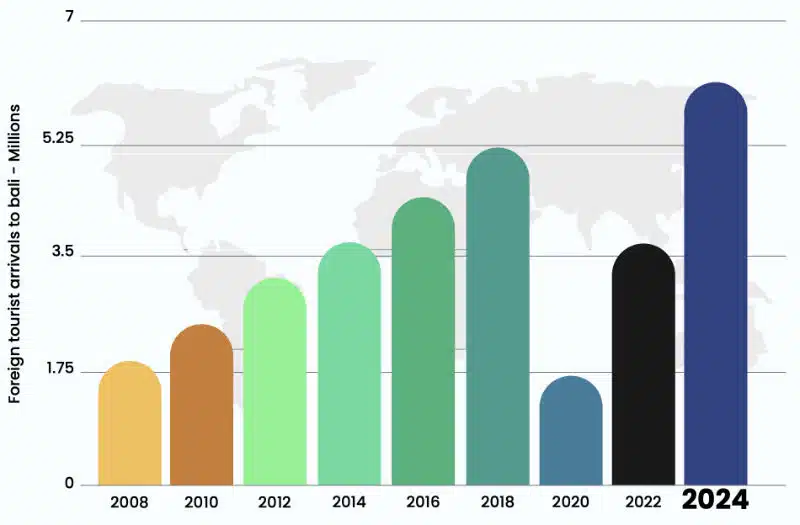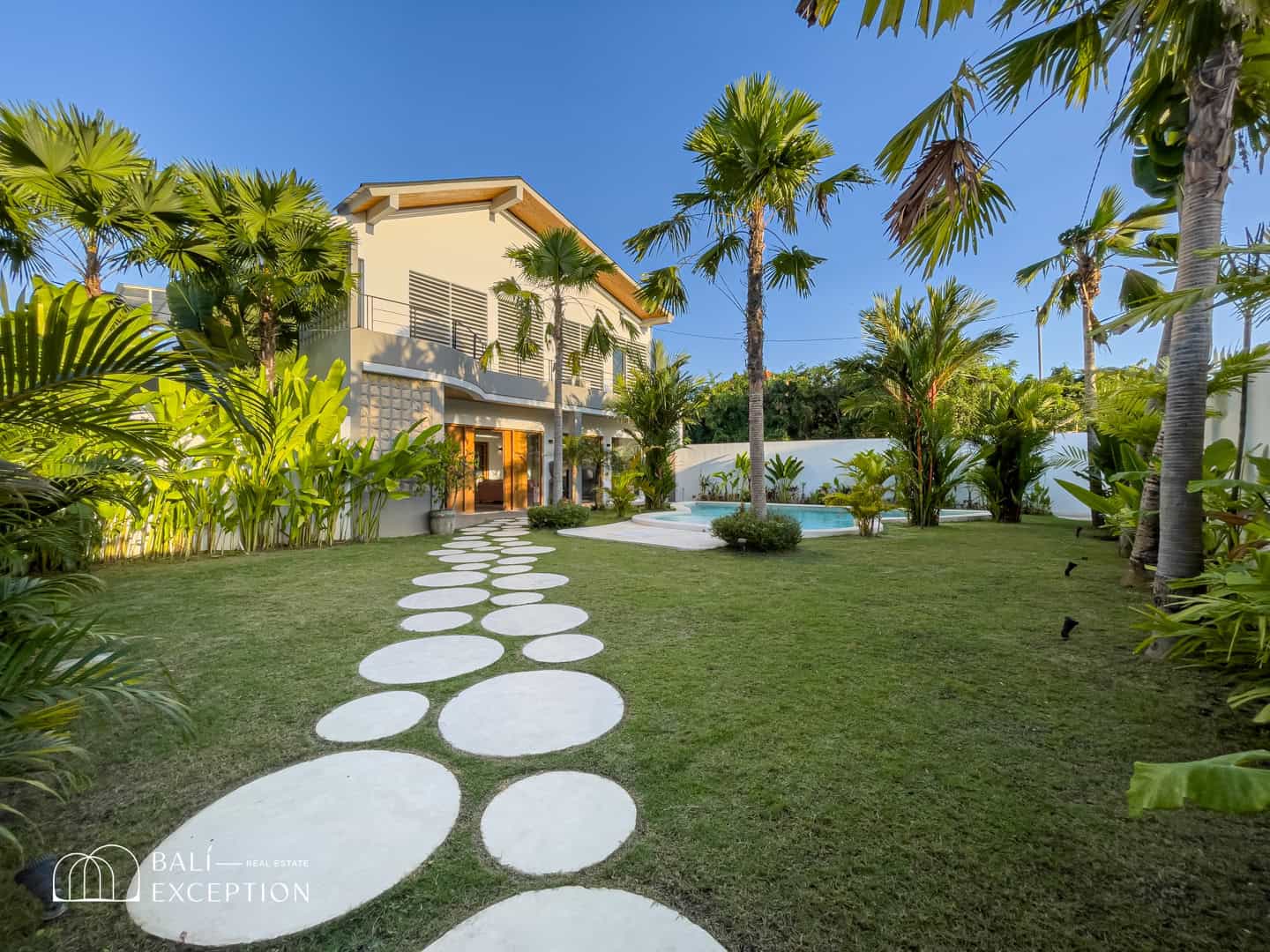Bali is a dream destination for many, with its stunning beaches, lush landscapes, and vibrant culture. It’s no wonder that many foreigners are eager to invest in property on this beautiful island. However, buying property in Bali as a foreigner involves navigating a complex legal landscape.
This guide will help you understand how you can own property in Bali through the establishment of a PT PMA (Perseroan Terbatas Penanaman Modal Asing), a Foreign Investment Limited Liability Company, which is the key to unlocking property ownership for non-Indonesians.

Why Choose a PT PMA for Property Ownership?
For foreigners, directly purchasing property either land, villas, or houses in Indonesia is prohibited. However, by setting up a PT PMA, you can legally acquire property in Bali under a “Right to Build” (Hak Guna Bangunan or HGB) or “Right to Use” (Hak Pakai or HP) title.
Key Property Rights for Foreigners:
- Hak Pakai (Right to Use): Allows foreigners to use land for a specific purpose for up to 25 years, extendable for another 20 years.
- Hak Sewa (Right to Lease): Permits leasing of property for up to 25 years, with possible extensions.
- Hak Guna Bangunan (Right to Build): Grants the right to construct and own buildings on land for up to 30 years, extendable for 20 years.
These titles allow you to enjoy long-term ownership rights, similar to freehold, with terms that can extend up to 80 years or more. Here’s how it works:
Key Features of PT PMA:
- Ownership Rights: Unlike leasehold, which limits ownership to a set period, a PT PMA allows you to own property more securely through HGB or HP titles. Can be 100% foreign-owned or a joint venture with Indonesian partners.
- Extended Tenure: HGB titles offer an initial 30-year ownership period, extendable for another 20 years, with the possibility of further renewals, making it a long-term investment.
- Flexibility: Properties owned through a PT PMA can be used for residential, commercial, or investment purposes, providing greater flexibility for foreign investors.
Key points about PT PMA:
- Legal framework: PT PMA is regulated under Law Number 25 Year 2007 on Capital Investment and other relevant laws and regulations.
- Ownership: PT PMA can be established with up to 100% foreign ownership, depending on the business sector. Some sectors have restrictions on foreign ownership percentages.
- Minimum capital: The typical minimum capital requirement is IDR 10 billion (approximately USD 700,000), with at least 25% of this amount to be paid up.
- Structure: A PT PMA must have at least two shareholders, a CEO (director), and a commissioner.
- Permits and licenses: PT PMAs need to obtain various licenses and permits, including a business license from the Investment Coordinating Board (BKPM).
- Purpose: PT PMAs can engage in a wide range of business activities, including manufacturing, trading, and services, subject to the Negative Investment List (DNI) which specifies sectors with foreign ownership limitations.
Setting Up a PT PMA: Key Steps and Considerations
Establishing a PT PMA involves several crucial steps, which we will summarize in the conclusion of this article. However, due to the complexities involved, it’s highly recommended to reach out to a trusted real estate agency in Bali for more comprehensive guidance and personalized support throughout the process:
- Legal Entity Setup:
- Register with BKPM: The first step is to register your PT PMA with the Indonesian Investment Coordinating Board (BKPM). You’ll need to meet minimum capital requirements, which generally include a total investment plan of around USD 700,000 and a paid-up capital of USD 250,000.
- Compliance: Ensure your PT PMA complies with all Indonesian laws, including foreign ownership regulations and zoning laws.
- Understanding HGB and HP Titles:
- HGB (Right to Build): This title allows your PT PMA to construct and operate buildings on the property for up to 80 years, making it the closest alternative to freehold ownership.
- HP (Right to Use): This title is typically used for residential properties and can be renewed for additional periods, ensuring long-term ownership.
- Engage Legal and Real Estate Professionals:
- Notary and Legal Advisors: Work with a notary and legal experts to ensure all documents are correctly prepared and submitted. The process of setting up a PT PMA and acquiring property through it can be complex, so professional guidance is essential.
- Strategic and Financial Planning:
- Investment Strategy: Plan your investment carefully, considering location, type of property, and market trends. Bali’s property market offers diverse opportunities in both residential and commercial sectors.
- Financial Planning: In addition to the initial capital investment, budget for ongoing costs, including taxes, maintenance, and renewal fees for your HGB or HP titles.
- Permits and Licenses:
- Business Licenses: Obtain the necessary business licenses, including a Principle License (Izin Prinsip) and a Business License (Izin Usaha), which are required to operate your PT PMA in Indonesia.
- Banking and Operations:
- Open a Bank Account: Set up a corporate bank account in Indonesia to manage your PT PMA’s finances, including property transactions and operational costs.
- Ongoing Compliance and Management:
- Renewals and Reporting: Keep track of renewal dates for your HGB or HP titles and ensure compliance with all reporting requirements to maintain your property ownership.
Benefits of Owning Property through a PT PMA
Owning property through a PT PMA offers several advantages:
- Security and Flexibility: HGB and HP titles provide secure, long-term ownership rights, which can be renewed and transferred, offering flexibility for future planning.
- Legal Protection: PT PMA ownership structures offer better legal security for foreign investors compared to other options like leasehold.
- Investment Potential: Bali’s thriving real estate market, driven by tourism and infrastructure development, offers significant investment growth potential for properties owned through a PT PMA.
Challenges and Considerations
While setting up a PT PMA provides a viable path to property ownership in Bali, it comes with its challenges:
- Minimum Investment: PT PMAs are required to have a minimum investment of 10 billion IDR (approximately $700,000 USD).
- Complexity: The process of establishing and maintaining a PT PMA can be complex and time-consuming.
- Ongoing Compliance: Regular reporting and compliance with Indonesian business regulations are required.
- Tax Implications: Understanding and managing the tax obligations of a PT PMA is crucial.
Conclusion: Is PT PMA the Right Choice for You?
Setting up a PT PMA is a smart way for foreigners to own property in Bali, offering secure, long-term ownership and investment potential. However, it requires careful planning, legal expertise, and a clear understanding of Indonesian regulations. By following the steps outlined in this guide and working with experienced professionals, you can navigate the process smoothly and make a successful property investment in Bali.
Whether you’re looking to buy a villa, develop a resort, or invest in commercial real estate, a PT PMA gives you the flexibility and security to achieve your goals. With the right approach, your dream of owning property in Bali can become a reality.


